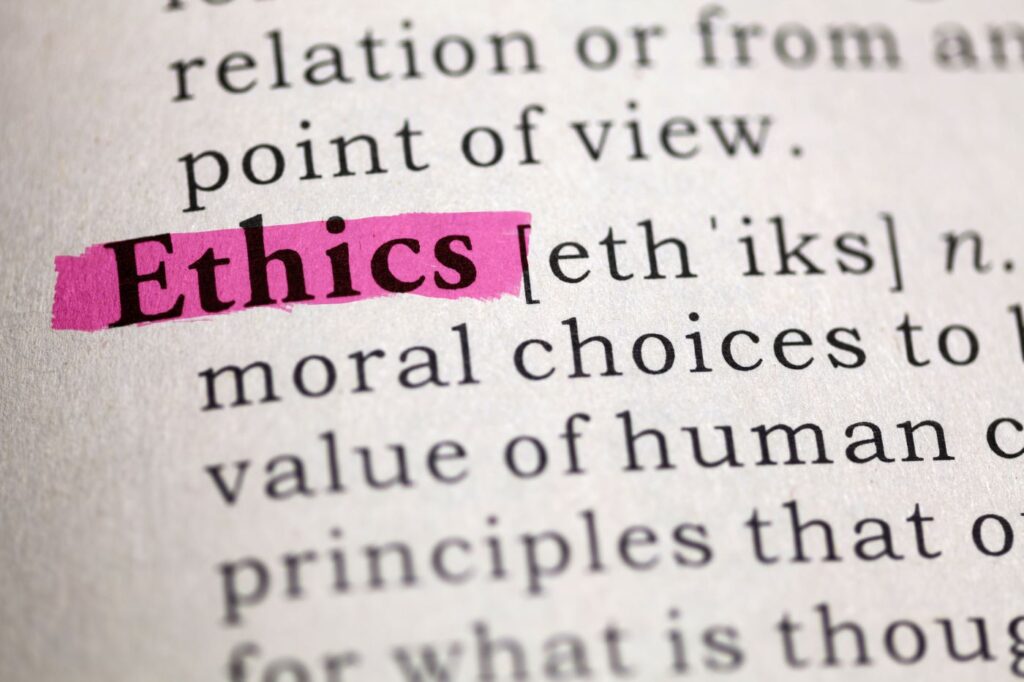I am grateful for the kind response that the inaugural “Ask Chris Tollefsen” column has received. A little earlier than expected, I’m back with the following very interesting questions from readers. As always, I’ll give my best account of what seems reasonable in the situation. But it is only advice: everyone who writes needs to make an independent assessment about the soundness of my guidance.
I am a practicing hematologist who recently saw a patient with an inherited mutation of a clotting factor known to predispose to thrombosis and early pregnancy loss. She is thirty-six years old and due to fertility issues wishes to conceive through assisted reproductive technology (ART). She and her partner have decided that she would proceed with oocyte (human egg) harvesting and would then attempt fertilization using anonymous sperm donation. I expressed to her my professional reservations regarding their course of action.
I recommended against ART and encouraged them to consider adoption as the most appropriate option. She said she would consider my recommendation, and stated that if she were able to conceive through ART, she would like me to assist with the management of the anticoagulants, which would be given to prevent miscarriage and increase the likelihood of carrying the pregnancy to term.
If pregnancy is achieved in this way, would it be ethical for me to supervise the administration of anticoagulants?
Start your day with Public Discourse
Sign up and get our daily essays sent straight to your inbox.I think it is a testament to the care you have given your patient in the past that she came back to see you and has asked you to continue to provide care in the future if she becomes pregnant.
You write that you expressed your “professional reservations” about ART (assisted reproductive technology). You don’t mention what these are, but I agree there is more than one. First, using ART to achieve pregnancy in this case is, from a strictly medical standpoint, not a medical treatment; it in no way contributes to the health of your patient or addresses any health-related deficit. So you might well have professional reservations about it, given your vocation, which is to seek the health of those patients with whom you have a professional relationship.
Second, and again as a matter of professional concern, you might, in this instance, have medical reservations about the prospect of your patient’s becoming pregnant. While children are a great gift and an important part of marriage, there can also be sound reasons against seeking pregnancy, whether for a time, or for the foreseeable future. How, if that is the case, should the essential orientation of marriage toward new life be promoted? Adoption is one way; and as adoptive parents are, in my view, fully the parents of their adopted children, your advice to consider adoption seems to me sound.
There are also many moral reservations one might have about ART: that IVF, for example, is a form of baby-making; that it is almost always accompanied by creation of “surplus” embryos, some of which are discarded or consigned indefinitely to cryopreservation; and, as I mentioned in my last column, that it severs the unitive and procreative aspects of marital sexuality.
There is an additional moral problem in the case as described, namely, that the pregnancy would be achieved using anonymous sperm donation. I think it is an implication of the norm that the unitive and procreative aspects of marital intercourse not be separated, that each marital partner has a right—I would say an absolute right, one that cannot be waived—that pregnancy not be achieved through some other person’s gametes. Sperm and oocyte are genuinely parts of the husband and wife respectively, and their union is essential to the way in which a child can genuinely be the fruit of his or her parents’ physically embodied love. To conceive through the “flesh” of another man is, at least, on the borderline of adulterous action.
Is it within the scope of your professional responsibility to discuss with your patient such reservations? In general, I think, when patients consult a physician, they are entitled to hear his or her medical opinion, and have some reason to expect that the physician’s opinions on moral matters will not be shared.
When patients consult a physician, they are entitled to hear his or her medical opinion, and have some reason to expect that the physician’s opinions on moral matters will not be shared.
But this is not an absolute norm: a man being treated for an STD contracted in an adulterous relationship is entitled to respectful treatment from his physician, and that might involve the physician’s remaining silent on the question of the husband’s infidelity. But, on the other hand, physicians exist in personal relationships with their patients founded ultimately on concern for those patients as persons. It is true that this concern primarily manifests as concern for the patient’s health, and not for every aspect of his or her well-being. But where the relationship is strong, or the moral need urgent, and there is some reason to hope for success, then I think a physician can express moral reservations about a patient’s choices, as you perhaps did.
I think this requires prudential judgment on the part of physicians. But I think that as regards your main question, the answer falls more squarely within the realm of what is required by your professional commitments.
That commitment is, again, to your patient’s health; and when any patient of yours is pregnant, that concern extends as well to your patient’s child. That concern, and the obligations it generates, are not voided by facts about the patient other than the patient’s health needs.
You should not, it is true, assist in a patient’s moral wrongdoing in service of his or her health. But in this case, you need not worry that by caring for your patient through her pregnancy you are in some way aiding or abetting immoral actions. Once pregnancy is achieved, and your patient visits you in your professional capacity seeking help with the administration of anticoagulants, the immoral action is over and cannot be reversed; but the mother remains in need of your professional care and expertise. Moreover, the child is manifestly guilty of nothing, and I think that if you can assist the mother in bringing the child to term, you should. In doing so, you would exercise the virtue of solidarity, willing both your patients’ good, while participating in no evil.
A close friend who does not identify as Jewish but meets the Halachic (Jewish legal) criteria of a Jew will soon be marrying her Catholic fiancé, an invalid marriage according to Halacha (Jewish law). As an Orthodox Jew, I cannot support my friend’s marriage. Should I communicate my disapproval of her upcoming marriage? How should I communicate that I cannot attend her wedding?
Like the previous writer, I think you are ultimately asking a question about the boundaries of your responsibilities. You wish to be both a good friend, and a good Orthodox Jew. The latter is not quite the same as being a good doctor, but I think there might be some parallels worth exploring.
Being a good doctor does not require being responsible for everything in a patient’s life. Rather, the good doctor is responsible for offering, and, if the offer is accepted, providing care that centers around the patient’s health-related needs. Many of a patient’s moral and personal decisions fall outside the realm of that care, and, provided the physician is not assisting in a patient’s immoral actions, she often has no positive responsibility to engage with a patient about actions she might find morally or prudentially problematic.
Your responsibility as an Orthodox Jew is also, I think, in the first place, to do no wrong, as judged by the standards of your religion, and to assist no one else in doing what you take to be wrong. You should also, of course, not assist others in doing what they take to be wrong, even when you think it is morally permissible, since that would be to induce them to act contrary to their own conscience.
Special relationships can, it is true, require more of you. You have special positive responsibilities to your spouse, children, and sometimes other family members to help them avoid wrongdoing, sometimes by letting them know that is what they are, in fact, doing. Within tightly knit religious communities, such as I imagine yours to be, there can also be duties to provide such guidance, and occasionally chastisement, to fellow members of the community.
But it seems to me that in this case, your positive responsibility ends with the obligation not to attend your friend’s wedding. Marriage is a sacred institution for Jews, as for Christians, and we should not participate in weddings that we do not believe actually contract a genuine marriage. So if you are correct that the marriage would not be valid according to Halacha, then I agree that you should not attend.
I think it would then be reasonable, and, if tactfully done, not offensive, for you to remind your friend that as an Orthodox Jew it would not be Halachic for you to participate. You can also express regret that you are unable to—this would, I think, be honest, even if somewhat economical with the truth, since you seem also to regret that your friend is marrying a non-Jew.
But you needn’t, I think, tell your friend everything about how you feel, including your disapproval, for the following reasons. First, it seems from your question that your friend is marrying in good conscience. She does not consider herself a Jew, and if so, she seems inculpable of any wrongdoing, even if you think that her marriage is invalid.
You are simply not responsible for all that your friend does, and, if you limit your actions to what is required by your actual responsibilities, you will both avoid doing wrong yourself, and will retain a friendship that you seem truly to value.
Second, it is not clear that you would do any good, and it seems likely that you would do serious harm to your relationship with your friend, possibly to the point of ending the friendship. Unless your responsibilities as an Orthodox Jew preclude your being in a relationship with someone you consider to be in an invalid marriage, it seems that the reasons for not communicating your full thoughts are quite strong, and the reasons for communicating are weak.
Like the physician in relation to much of her patient’s non-health related life, you are simply not responsible for all that your friend does, and, if you limit your actions to what is required by your actual responsibilities, you will both avoid doing wrong yourself, and will retain a friendship that you seem truly to value.
I’d like to thank both writers; their questions, and others I’ve received, are a reminder of the complexities of living in a world in which we often have serious moral disagreements with our friends, family, patients, and others. It is essential to engage such persons without compromising our moral principles; but also important to value the goodness of those relationships, and not to damage them without good reason.
Submit your own ethical questions to Chris!
Image by Feng Yu and licensed via Adobe Stock. Image resized.














